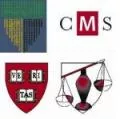
Harvard-MIT-Yale Cyberscholar Working Group
A Harvard-MIT-Yale Cyber Scholars Working Group
Session theme: Infrastructure, ICTs, Imagination
Tuesday March 23, 2010, 6:00 pm - 8:30 pm
B48, Hall of Graduate Studies
(Across York Street from Yale Law School)
New Haven, CT
Map: http://tiny.cc/aYvYG
Alien Infrastructures: Learning from Unusual Arrangements of Information and Communication Technology
Christian Sandvig
Pragmatically minded researchers often use "best practices" comparisons to study the design and organization of technological systems such as telephone networks, broadband providers, and platforms for computer-supported cooperative work. While best practices are often useful, in complex interdependent systems that depend heavily on their context, dramatic and inspirational differences may be just as valuable as the imitation of commonalities. This argues for research on best practices and also on strange practices. In this research project we compile a literature of cases that are recognizable as information and communication systems, but due to one (or more) severe constraint they have evolved in a way that is noticeably strange. By focusing on these constraints we develop a database of difference that includes shoe computers, pigeon networks, modern long-distance atmospheric optical networks, and Internet services optimized for semi-nomadic reindeer herders. We use this corpus to assess our own expectations for technological systems of information and communication, and reflect on what a standpoint theory of infrastructure might look like.
Infrastructures of Imageability
Susanne Seitinger
Increasingly, urban environments are brightly illuminated by a combination of display and lighting technologies at nighttime. These systems fulfill different functions and are rarely designed together to enable a holistic lighting environment. Meanwhile, advances in LED technology and the miniaturization of embedded electronics are converging towards new types of addressable infrastructures that both provide light and convey content. Rather than understanding these systems separately, I suggest blurring the boundary between various “infrastructures of imageability” to rethink their social and aesthetic role in the city. I revisit the socio-technical origins of lighting and display to suggest some possible directions for alternative narratives of urban illumination.
Rural Development through Village Knowledge Centers in India
Ramesh Subramanian
For the past several years, India has experimented with extending the reach of ICTs to rural areas with a view to bringing development to these areas. This paper examines the implementation of Village knowledge Centers in rural Southern India. I first describe the developmental disparity that exists between urban and rural areas in India, and justify the implementation of rural projects that extend ICTs to rural areas. I examine prior work and then describe in detail the Village knowledge Center Project conceived, developed and implemented by the M.S. Swaminathan Research Foundation, a NGO located in Chennai, India. I then describe my field visits and observations and conclude with an analysis of the role and benefits of such projects, unresolved questions and issues, and possible directions for future work.
--
Christian Sandvig (Ph.D Stanford) is an Academic Fellow at the Berkman Center for Internet and Society at Harvard University as well as an Associate Professor in Communication, Media, and the Coordinated Science Laboratory at the University of Illinois at Urbana-Champaign. http://www.niftyc.org/
Susanne Seitinger (MCP MIT, BA Princeton) is a PhD student with the Smart Cities group at the MIT Media Lab. Her dissertation –Liberated Pixels: Alternative Narratives for Lighting Future Cities– explores the aesthetic and interactive potentials for future lighting and display infrastructures. http://www.mit.edu/~susannes, http://cities.media.mit.edu
Ramesh Subramanian (PhD, MBA Rutgers) is a Visiting Fellow at the Information Society Project, Yale Law School as well as the Gabriel Ferrucci Professor of Information Systems at Quinnipiac University. His research interests focus on the intersection of IT and technology policy in developing countries, Security, Law, & Cross-cultural issues. Ramesh.subramanian@quinnipiac.edu, Ramesh.subramanian@yale.edu
The Harvard-MIT-Yale Cyberscholar Working Group features ongoing research concerning the digital age. Meeting alternatively at Harvard, MIT, and Yale, the group aims to share and enrich knowledge among rising scholars. Sessions are designed to advance research through cross-disciplinary conversation.
